Walter Pater Quotes & Sayings (Page 2)
Walter Pater quotes and sayings page 2 (critic). Here's quote # 11 through 20 out of the 25 we have.
“One of the most beautiful passages of Rousseau is that in the sixth book of Confessions, where he describes the awakening in him of the literary sense. Of such wisdom, the poetic passion, the desire of beauty, the love of art for its own sake, has most.”
“Such discussions help us very little to enjoy what has been well done in art or poetry, to discriminate between what is more and what is less excellent in them, or to use words like beauty, excellence, art, poetry, with a more precise meaning than they would otherwise have.”
“Not to discriminate every moment some passionate attitude in those about us, and in the very brilliancy of their gifts some tragic dividing on their ways, is, on this short day of frost and sun, to sleep before evening.”
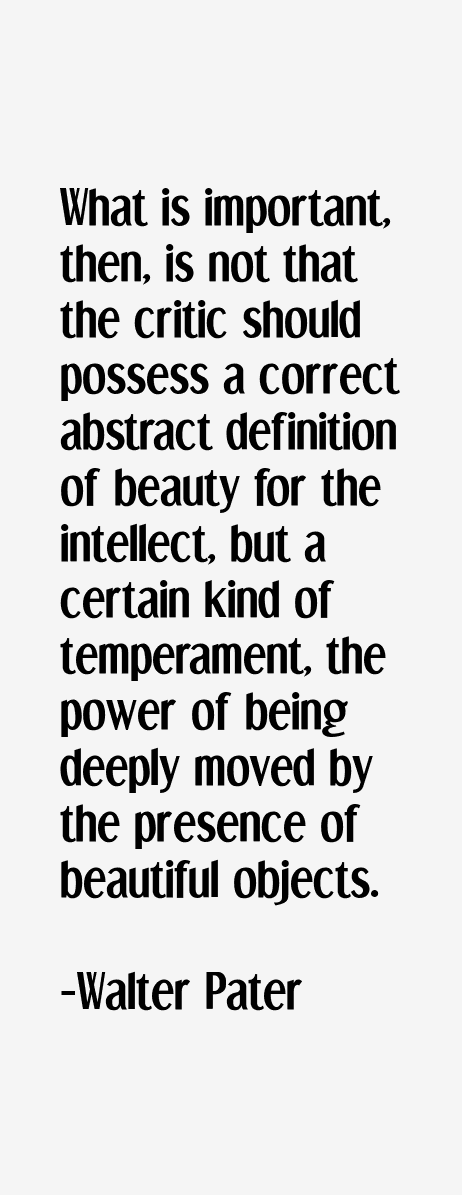
“What is important, then, is not that the critic should possess a correct abstract definition of beauty for the intellect, but a certain kind of temperament, the power of being deeply moved by the presence of beautiful objects.”
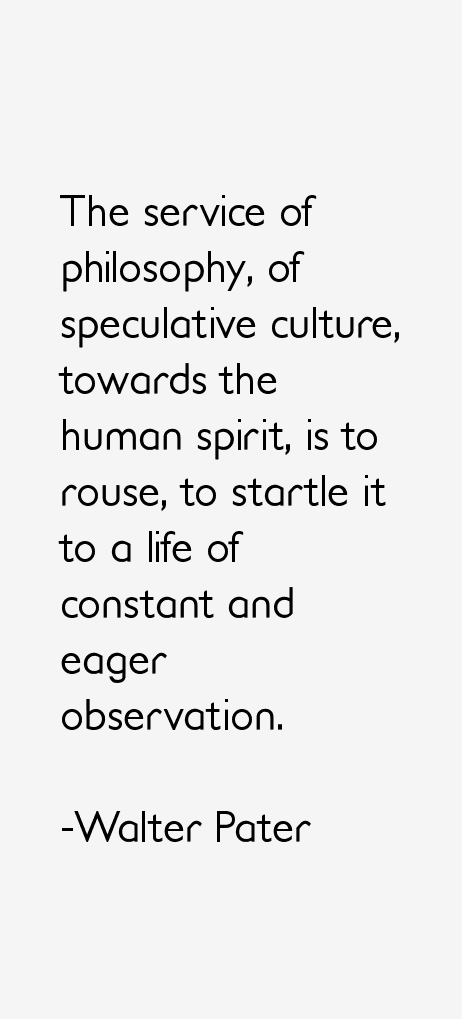
“The service of philosophy, of speculative culture, towards the human spirit, is to rouse, to startle it to a life of constant and eager observation.”
“In a sense it might even be said that our failure is to form habits: for, after all, habit is relative to a stereotyped world, and meantime it is only the roughness of the eye that makes two persons, things, situations, seem alike.”
“Experience, already reduced to a group of impressions, is ringed round for each one of us by that thick wall of personality through which no real voice has ever pierced on its way to us, or from us to that which we can only conjecture to be without.”
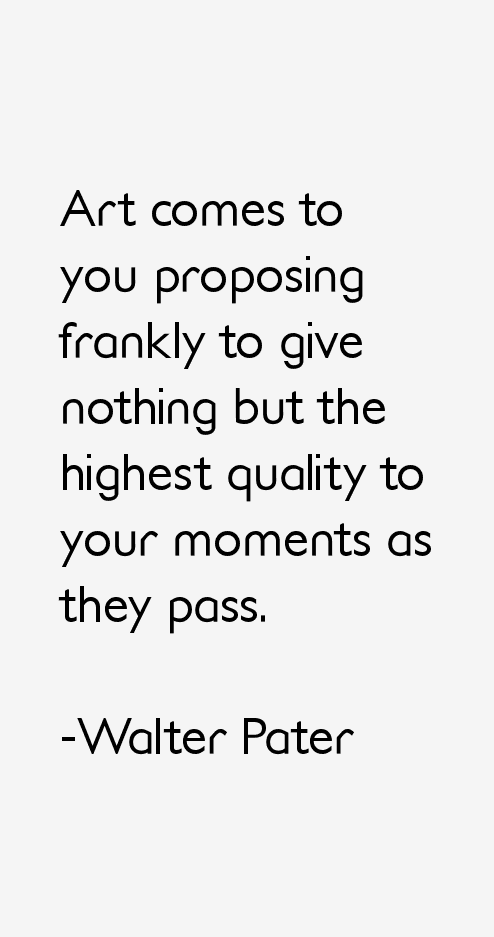
“Art comes to you proposing frankly to give nothing but the highest quality to your moments as they pass.”
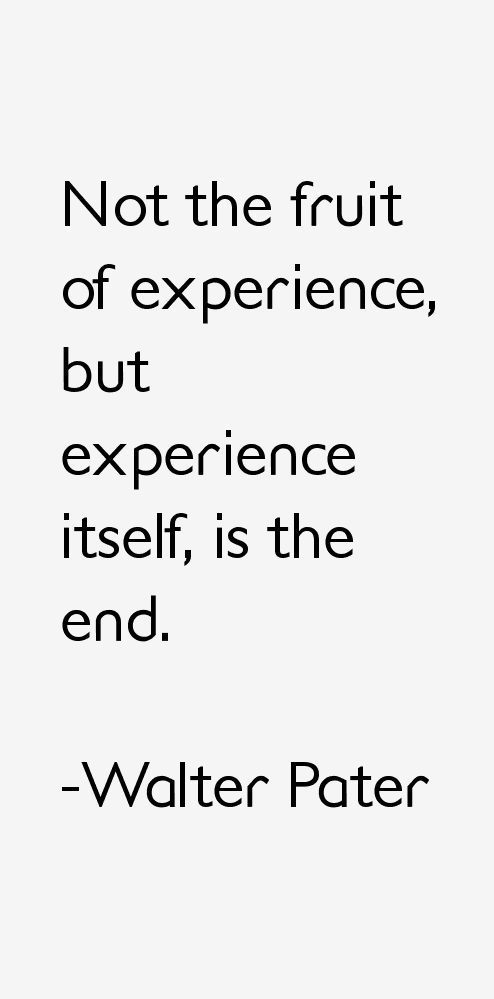
“Not the fruit of experience, but experience itself, is the end.”
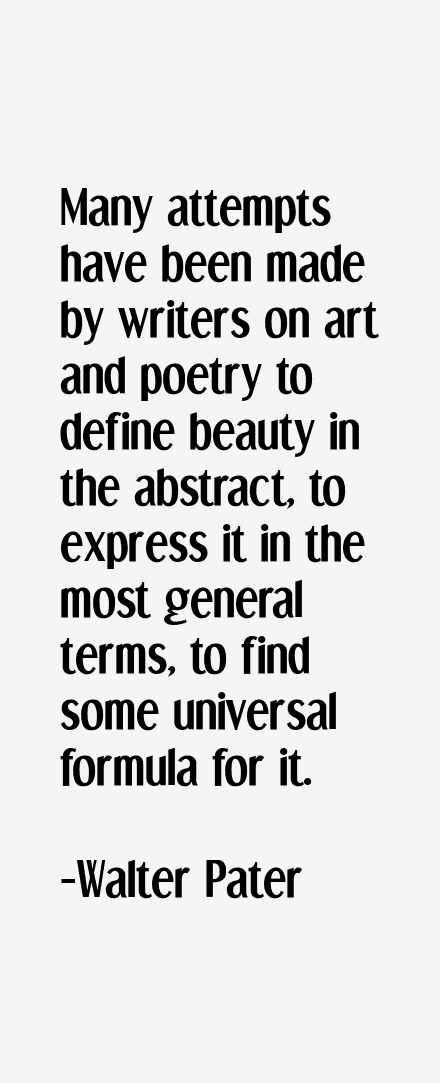
“Many attempts have been made by writers on art and poetry to define beauty in the abstract, to express it in the most general terms, to find some universal formula for it.”
Walter Pater Quotes Rating
No Ratings Yet
Leave A Comment
























